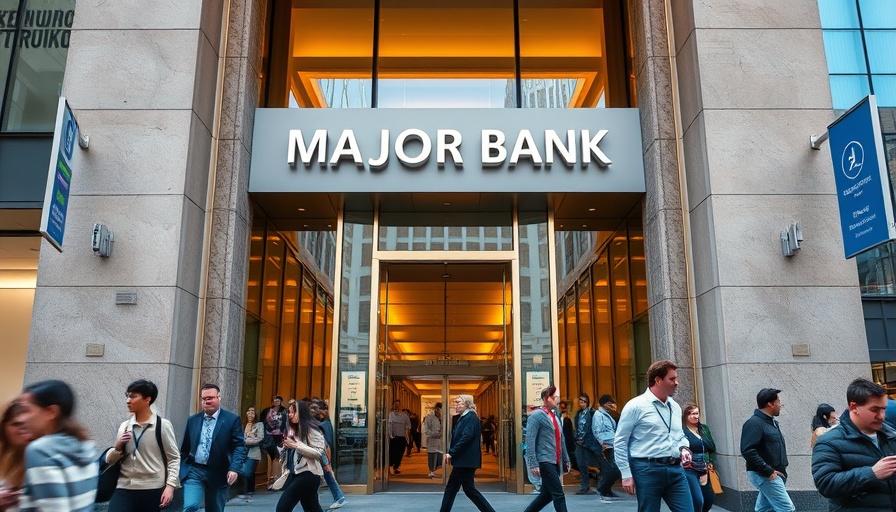
Big Payouts from US Banks: A Bright Spot Amid Economic Concerns
In recent weeks, U.S. banks have announced significant shareholder payouts, taking advantage of newfound regulatory easements from the Federal Reserve. This move is seen as a positive step for investors, allowing banks to distribute excess capital back to shareholders just when many Americans are feeling the strain of rising interest rates and inflation.
Understanding the Fed's Relaxed Stress Tests
The Federal Reserve's decision to ease stress tests signifies a shift in the financial landscape, particularly as banks are now less constrained in their capital distributions. Traditionally, stress tests are designed to ensure financial institutions can withstand economic shocks. With fewer restrictions, banks can offer dividends and share buybacks, thereby injecting cash directly into the pockets of investors.
This can have a ripple effect on the economy, as increased shareholder payouts may result in more spending and investment by those individuals. According to the Fed, these changes aim to bolster the banking system's resilience while still ensuring financial stability.
Impacts on Personal Finance Strategies
For regular investors and families, understanding how these changes in bank policies can affect personal finance is crucial. As U.S. banks distribute larger payouts, this may be an opportune time for investors to reassess their portfolios. It encourages planning for taxes on dividends, which may rise alongside these enhanced payouts.
Moreover, those who are nearing retirement could consider reallocating their investments to take advantage of higher dividends. The increased capital returns could supplement their retirement income, showing that these banking decisions are not just for institutional investors.
The Broader Economic Implications
As banks signal a confident outlook through meaningful payouts, the broader economic implications continue to unfold. With economic recovery still in flux, how banks handle their capital lends insight into their confidence in the U.S. economy. Increased payouts can signal a positive forecast, indicating that banks believe they’ll thrive despite prevailing economic challenges.
Finances and Everyday Life: Relatable Perspectives
To illustrate how these changes trickle down to everyday Americans, consider a local family looking to buy their first home. With banks feeling financially secure, they may ease lending terms or reduce interest rates, making mortgage loans more accessible. This could potentially spark a new wave of homebuying, further stimulating the housing market.
Besides, imagine a small business owner receiving additional dividends now has a chance to reinvest in their company, expand offerings, or enhance operations. These benefits contribute to job creation and positively impact local communities.
FAQs: What Should Investors Know?
What constitutes a significant payout?
A significant payout typically refers to increased dividends or stocks repurchases greater than investors expect or that the company has historically issued.
How should I respond to increased bank payouts?
Evaluate your current investments carefully, considering whether to reinvest payouts into higher-performing areas or use them for immediate needs.
Will this trend continue?
If economic conditions remain steady or improve, we can likely expect ongoing significant payouts as banks adapt to a more favorable operating environment.
Conclusion: Preparing for Future Financial Moves
Understanding the evolving banking landscape is vital for everyone, from the small investor to the everyday consumer. The recent announcements from U.S. banks signal a favorable climate for shareholder payouts, but they also remind us that navigating personal finance requires continuous learning and adjustment. Embrace this moment as an opportunity to reevaluate your financial goals and strategies, ensuring you’re prepared for whatever the future brings.
 Add Row
Add Row  Add
Add 




 Add Row
Add Row  Add
Add 








Write A Comment